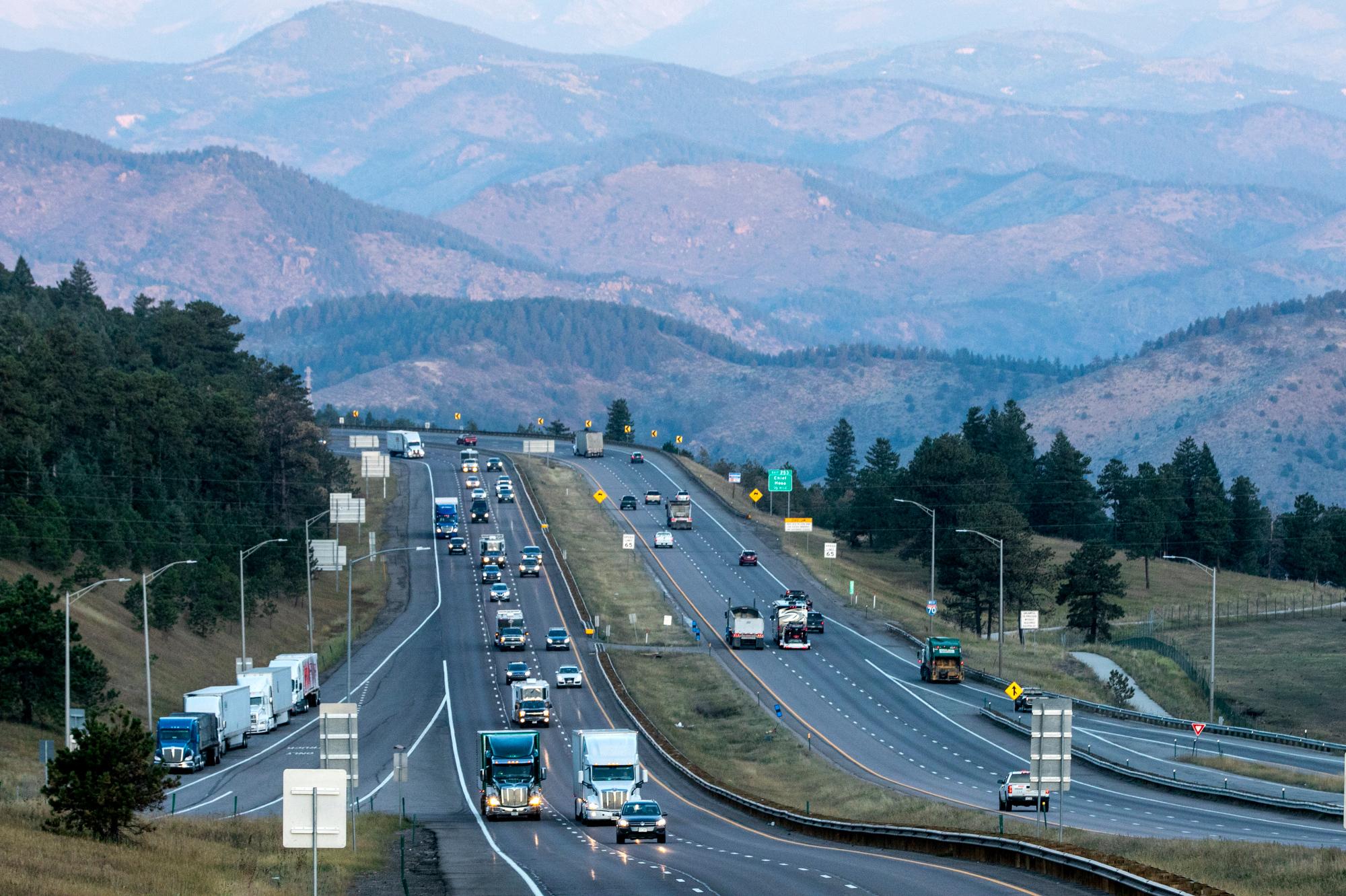
The bipartisan infrastructure deal making its way through the Senate may not have a quick fix for the Glenwood Canyon closure, but it will include investments for Colorado’s roads, water storage, wildfire mitigation systems and more.
“This legislation is a good initial investment in building the 21st century American infrastructure that this moment demands,” Sen. Michael Bennet said in a statement.
Sen. John Hickenlooper, who was part of the bipartisan group supporting the infrastructure framework, points to large investments in clean water and water infrastructure, and measures that help the transition to a clean energy future as just some of the benefits for the state.
“There's gonna be a lot of money for forest resilience and to make sure that when you've had wildfires, so you don't lose your reservoir capacity,” he said.
The bill includes $110 billion for roads, bridges and major projects, while preserving a 90-10 split of federal highway aid to states. Hickenlooper said fixing I-70 through Glenwood Canyon “is the kind of thing that clearly qualifies for these kinds of investments.”
Based on the funding formula, that means Colorado could get $3.7 billion in highway funds and $225 million for bridge repair and replacement.
Hickenlooper also noted the $65 billion set aside in the bill for broadband expansions could be a boost for some rural or mountainous areas in the state.
The bill also includes a couple of Hickenlooper’s provisions, including a review of utility rates for electric vehicle charging and a study on how marijuana impairs driving.
Bennet ensured there would be funds for the emergency watershed protection program and burned area rehabilitation on National Forest Service land, as well as measures to protect the energy grid from cyberattacks.
The Colorado delegation has been pushing a number of priorities that could benefit the state, including:
- Getting back RTD’s deposit on a Department of Transportation loan for Denver’s Union Station.
- Support for a United States Geological Survey research facility at the Colorado School of Mines
- Support for the Transportation Technology Center in Pueblo
- $65 billion to expand internet broadband, including a minimum of $100 million for Colorado
- $25 billion for airport improvements
- $39 billion for public transit, including $917 million over five years for improved public transportation options in the state
- $5.75 billion for wildfire management to reduce the threat of wildfire and rehabilitate and restore burned areas and forests
- $3.2 billion for aging water infrastructure
- $1 billion for rural water projects
- $400 million for waterSMART grants
- $50 million for Colorado River fish species recovery program
- $300 million for the Emergency Watershed Protection Program, which will help with wildfire recovery
- $4.7 billion for orphan well cleanup
- $7.5 billion to create an electric vehicle charging infrastructure across the count
- $8.3 billion for the Bureau of Reclamation over the next five years
- $300 million for the Colorado Drought Contingency Plan, including $50 million for the Upper Basin
- $55 billion for drinking water infrastructure, including $3.5 billion for Tribal clean water
- $300 million for forest service legacy roads and trail mediation
“I’m incredibly grateful to the bipartisan negotiators for including several financial components of [the 21st Century Climate Conservation Corps] legislation for wildfire management, climate resilience and power grid upgrades in the Bipartisan Infrastructure Framework,” said Rep. Joe Neguse.
The Senate has spent most of the week voting on amendments, giving those not involved in the negotiations an opportunity to tweak the bill. More than 350 amendments have been filed, including two from Bennet.
The Senate voted Wednesday night to include his amendment with North Dakota Sen. John Hoeven. That amendment formally establishes the Joint Chiefs Landscape Restoration program at the Department of Agriculture.
“There's a lot of important work to maintain the health of our forests and grasslands that they're unable to do. And the consequences of this have been terrible in the West,” said Bennet, as he described the program that would reduce wildfire threat, protect water quality and enhance wildlife habitat.
Even with the current price tag, though, not all of the Colorado delegation’s priorities made it into this bill. Millions of dollars Colorado House Democrats included in the House version of the surface transportation reauthorization bill are not included.
As of now, it’s unclear whether the House will try to put those measures back into the infrastructure bill. If and when the Senate passes the bill, it will have to survive a vote by the House.









